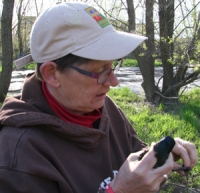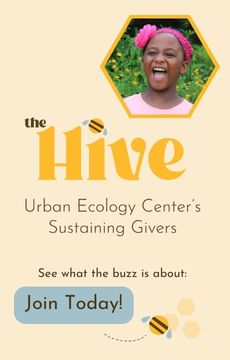One of the major benefits of the Center’s network of field stations is that it allows for long-term monitoring of changes over time in species abundance and distribution. This allows the Center to evaluate the effects of large stewardship projects like the Milwaukee Rotary Centennial Arboretum and Three Bridges Park and adapt management plans over time. The Center also conducts original research, which involves looking for ecological patterns and creating hypotheses and protocols to test those hypotheses.
A volunteer can become involved in any aspect of research, from creating hypotheses to collecting or analyzing data. There are training workshops on how to collect data in the field, as well as workshops geared toward data analysis and interpretation.
As staff we look forward to the time spent working with our Community Science volunteers. We love the enthusiasm and passion they bring, the personal stories they share, and the thoughtful questions they ask. We relish the expressions on the face of a volunteer holding a live dragonfly for the first time or the moment they hear bats “talk”. Our volunteers’ generous spirit and curiosity is unsurpassed and has helped elevate our Community Science program to one recognized on a national level.
We encourage you to give volunteering for Community Science a try. The commitment can be as much or little as you choose. For more information on Community Science at the Center, see urbanecologycenter.org/communityscience.




